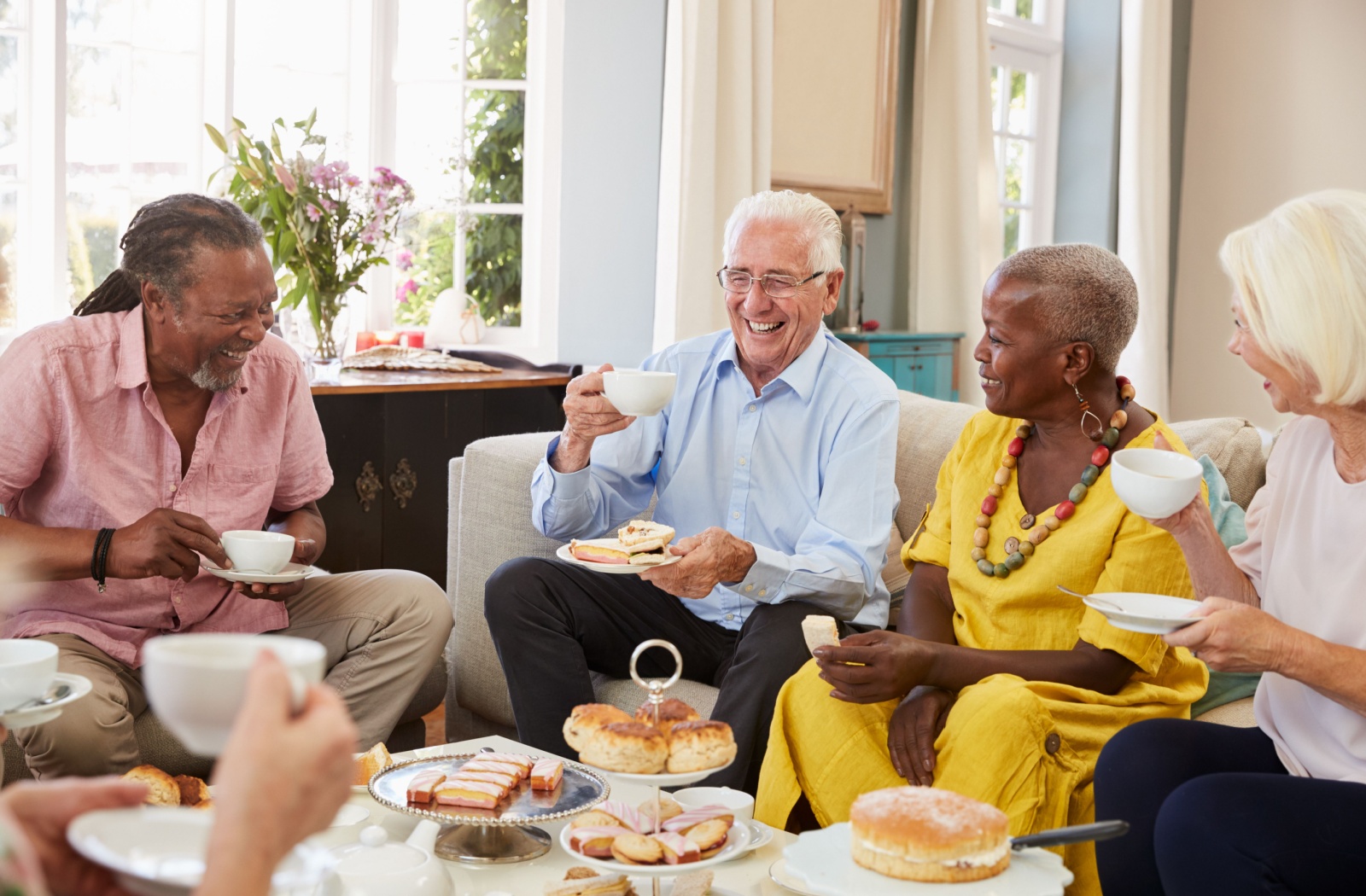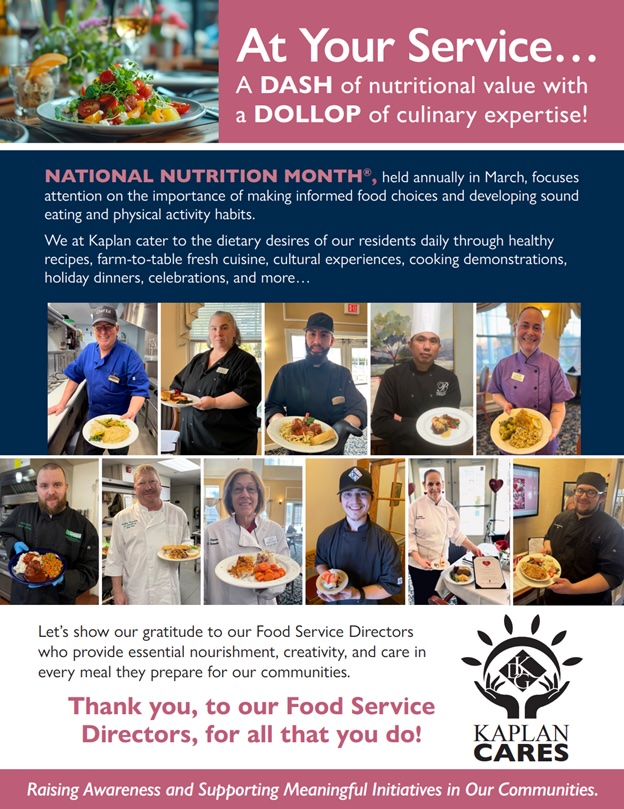Social bonding is inherent to the human experience. It shapes our lives from infancy when we connect with our family to making childhood friendships and maintaining relationships as adults.
Beyond happiness, fun, and laughs, social connection also supports cognitive health, especially in older adults.
Staying socially active stimulates areas of the brain responsible for:
- Decision-making
- Planning responses
- Managing social behaviors
- Memory recall
- Language processing
- Emotional regulation
Despite the cognitive health benefits, many older adults experience isolation and social withdrawal (from certain barriers), which are known risk factors for developing cognitive decline.
Taking the opportunity to help your loved one become socially active can support and improve their overall health and well-being. Options like senior living can help your loved one cultivate friendships, stay mentally active, and experience a continued sense of belonging.
The Social Secret to Sharp Cognitive Health
Maintaining social connections becomes more valuable as we grow older. Although researchers are still exploring the complexities of cognitive disorders, studies have found that social isolation is a risk factor for developing dementia.
Similar to how physical activity stimulates our muscles and joints, and mindfulness promotes emotional well-being, stimulating the brain in certain ways, like having a vibrant social life, can help promote cognitive well-being.
Connecting with others helps sharpen the mind by engaging areas of the brain responsible for:
- Decision-making, planning responses, and managing social behaviors
- Memory and language processing
- Emotional regulation
Think about it for a moment. Conversations require us to harness active listening skills, recall past details, and form an appropriate response. When talking with others, we strengthen these areas while enjoying meaningful time with people we care for.
Beyond cognitive benefits, staying socially connected supports emotional well-being. Taking the time to visit friends or attend a community class helps prevent loneliness and isolation, which can lead to mental health concerns like depression, anxiety, and stress.
Connection isn’t just good for the mind but for the soul, too.
Why Can Older Adults Struggle with Loneliness?
Despite the benefits of social bonds, many older adults struggle to maintain an active social life. Surveys show that about ¼ of adults aged 65 and older in the US are considered socially isolated.
This is because certain barriers can make it more challenging for older adults to stay socially connected:
- Physical limitations: Mobility issues, chronic illnesses, and hearing or vision impairments can make it difficult to participate in social activities.
- Life transitions: Retiring, losing a loved one, or moving away from their usual neighborhood often results in fewer opportunities for daily interaction.
- Transportation challenges: Many older adults lack access to reliable transportation, preventing them from attending events or visiting friends and family.
- Generational and technological gaps: Modern communication tools like video calls or social media may feel inaccessible or intimidating for some older adults.
Gradually withdrawing from social opportunities can create a cycle, which can be hard to overcome without the right support.
Luckily, we can help our loved ones and older adults in our communities. Even simple gestures can make a difference.

Fostering Friendships for Older Adults
Building meaningful connections takes time, effort, and kindness. Perhaps your loved one feels vulnerable or nervous about trying new experiences. Stay patient and understanding. Cultivating a safe space can encourage them to open up over time.
Here are some suggestions to foster gradual social connection:
- Start with regular visits or calls: A familiar presence offers comfort. Simple acts like a quick phone call, video chat, or an in-person visit can help maintain relationships.
- Participate in hobbies or groups: Introduce your loved ones to local clubs, group classes, or activities that align with their interests. Shared hobbies like gardening, crafting, or walking create opportunities to meet like-minded individuals, fostering the start of new friendships.
- Share meals: Sharing a meal is one of the easiest ways to connect. Regular family dinners or inviting them to community meal programs can make a meaningful difference.
- Help them access community resources: Look for community initiatives like senior centers, library programs, or neighborhood events to bring people together. Offer to accompany them or help in arranging transportation.
- Support online connection: If they’re open to it, teach your loved ones how to use technology like video calls or social media. This can be a helpful way to stay connected with far-away friends and family.
Sometimes, fostering relationships is as simple as sharing small talk with neighbors or reconnecting with distant relatives. Not everyone wants to be a social butterfly. Even having one or two meaningful conversations a week can brighten days and uplift spirits.
Through patience and encouragement, these minor efforts can lead to deeper, lasting relationships and a stronger sense of belonging for older adults.
Stay Socially Active in Senior Living
Social connection goes beyond making life enjoyable; it keeps the mind sharp and the heart healthy. At All American Assisted Living at Coram, we recognize the benefits of social connection and understand the barriers some older adults may face when trying to build community.
Our approach to senior living prioritizes all areas of wellness, be it physical, social, emotional, or cognitive, by offering all our residents opportunities for social connection and meaningful activity, no matter their interests or care needs.Connect with our team to schedule a tour and learn more about our vibrant approach to senior living.



